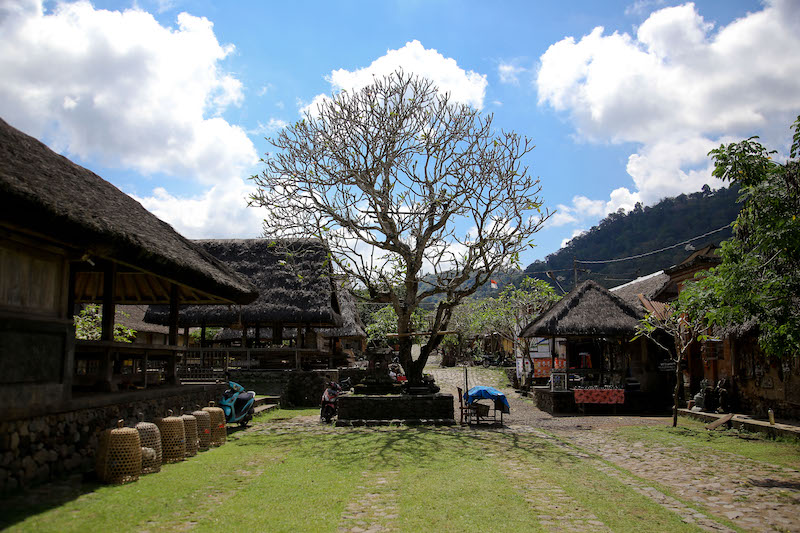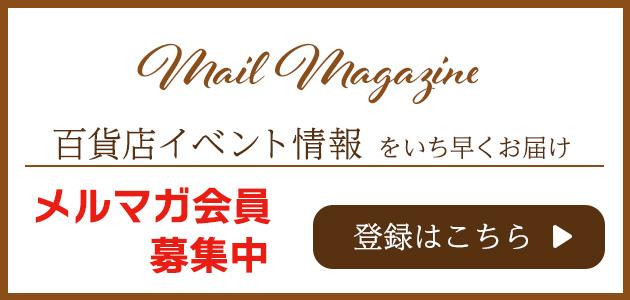About ATA
About ATA Products
Introducing the Traditional Indonesian Craft "ATA Products"
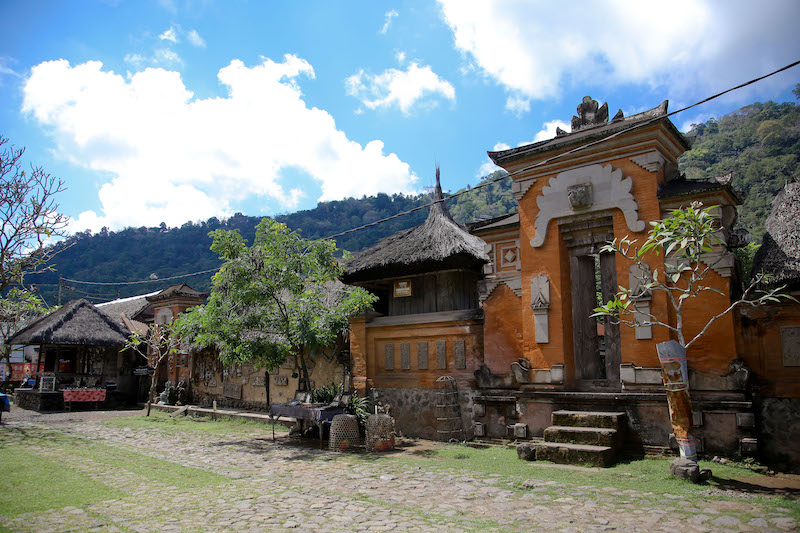
ATA products are one of the traditional crafts of Tenganan Village in eastern Bali.
The village is located about two hours by car from Denpasar, the central area of Bali.
Nestled in the mountains of Karangasem Regency, at the eastern tip of Bali, Tenganan Village is a small settlement. Here, the indigenous Balinese people known as "Bali Aga" continue to live while preserving their ancestral beliefs and customs.
Tenganan Village is famous for Gringsing (double ikat) textiles and ATA products introduced by Rosily. The ATA products crafted in Tenganan Village are particularly detailed and beautifully finished.
Characteristics of the "ATA" Plant
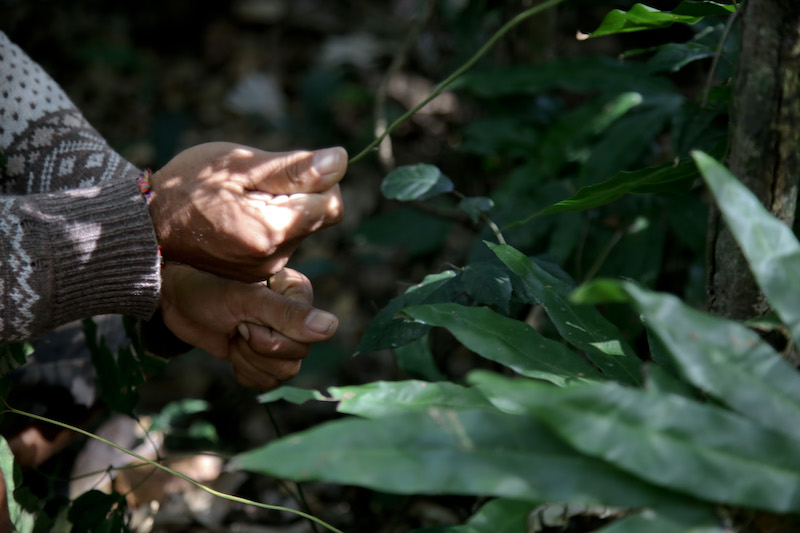
ATA, also known as "Atu" (grass) in Indonesian, is a type of fern that grows widely in Indonesia and is commonly seen in Bali.
Due to the difficulty of cultivation, wild ATA has become a precious resource. While the amount of ATA available is limited, overharvesting in recent years has led to price increases and chronic shortages. Attempts to cultivate ATA with the support of Bali Province in the past were unfortunately unsuccessful, highlighting its finicky nature.
The roots turn black when dried and are used for patterns (motifs). Rosily’s ATA products exclusively use the roots for black patterns, unlike others that often use paints or dyes.
Differences from Rattan
ATA is often compared to or confused with rattan.
ATA is woven exclusively in Bali, Indonesia.
Rattan, on the other hand, grows throughout Southeast Asia and is produced in countries such as Malaysia, China, Thailand, and the Philippines.
ATA is thinner and more flexible than rattan, making it suitable for crafting small items like bags and accessories that require detailed handwork.
Rattan is thicker and more versatile for bending, making it ideal for furniture such as chairs and tables.
-
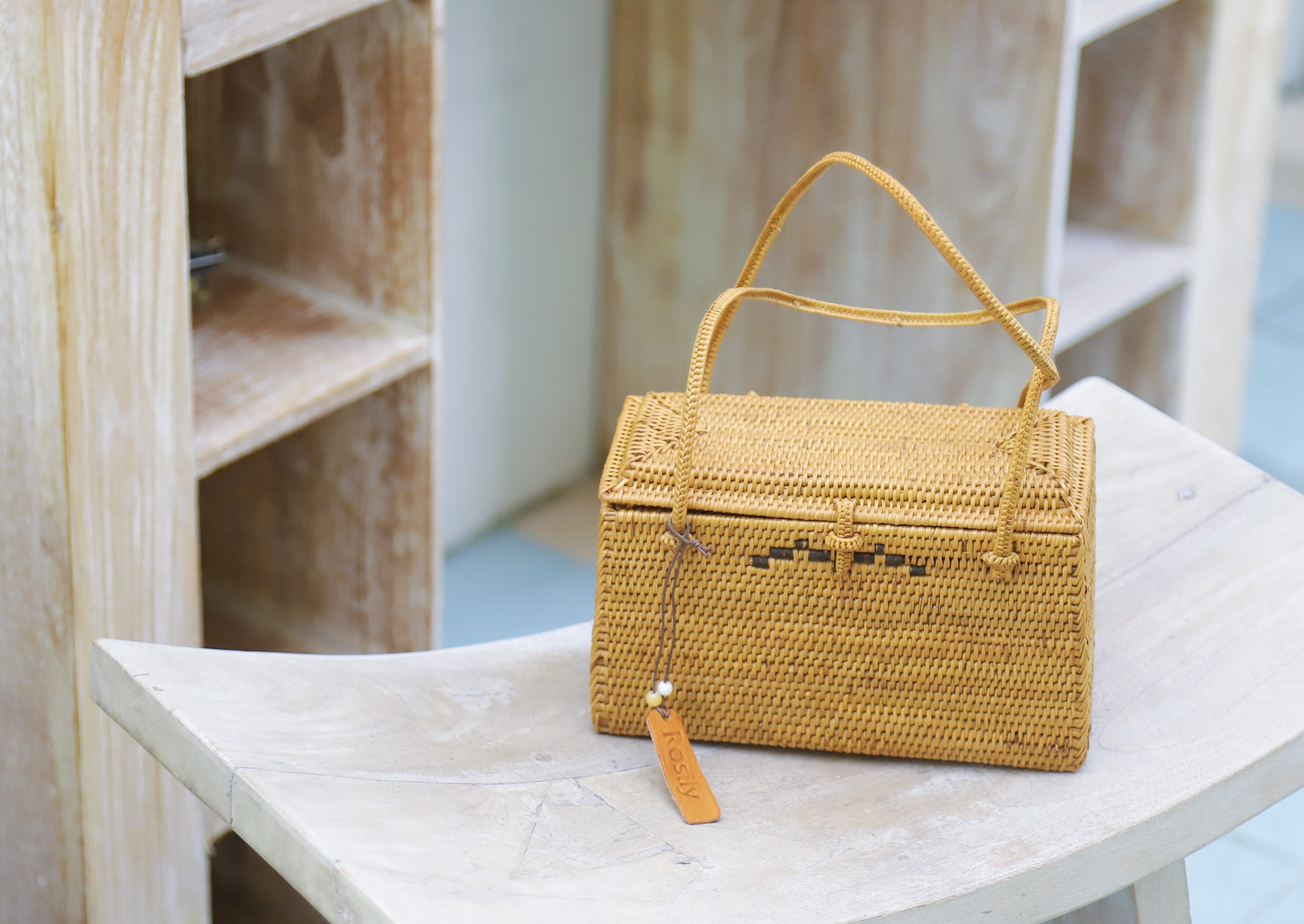
▲ ATA Product
-
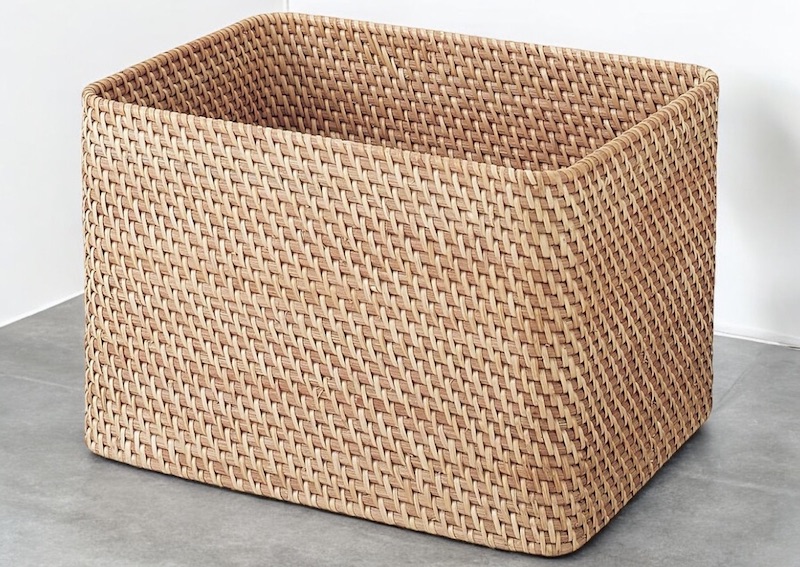
▲ Rattan Product
ATA products can also be purchased at airports in Malaysia and Singapore, likely imported from Indonesia. However, the quality of these products is often poor, raising concerns about tarnishing ATA’s reputation.
Concerns about splinters may stem from the perception of rattan, which is often bleached, weakening its fibers and making it prone to splintering.
In the past, non-bleached rattan products were available in Japan, but the demand for "pure white" products led to the use of bleaching. Both ATA and rattan are natural plants, and their color variations and black spots are part of their charm. During Japan’s Showa era, many people engaged in rattan crafts, but the bleaching process often caused skin irritation among artisans.
The black patterns found in Rosily’s ATA products come from the plant’s roots.
These natural features give each piece a unique character and charm.
The zero-waste approach also reflects Rosily’s commitment to environmental sustainability.
The Manufacturing Process of "ATA Products"
1. Removing Thorns
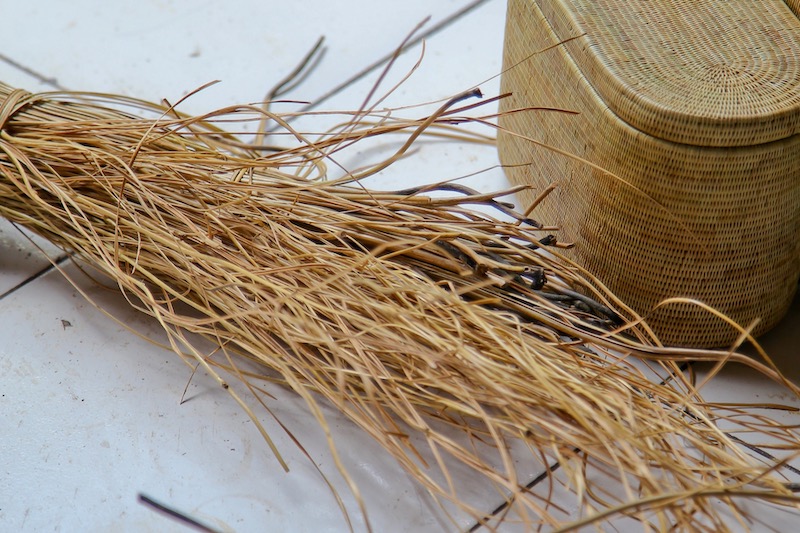
Harvested ATA leaves have thorns, which are carefully removed before the stems are dried. Once dried, the stems are split into 4 to 8 sections and processed into thin, long strips.
This meticulous cutting process requires years of experience and skill and significantly influences the beauty of the finished ATA products.
2. Weaving
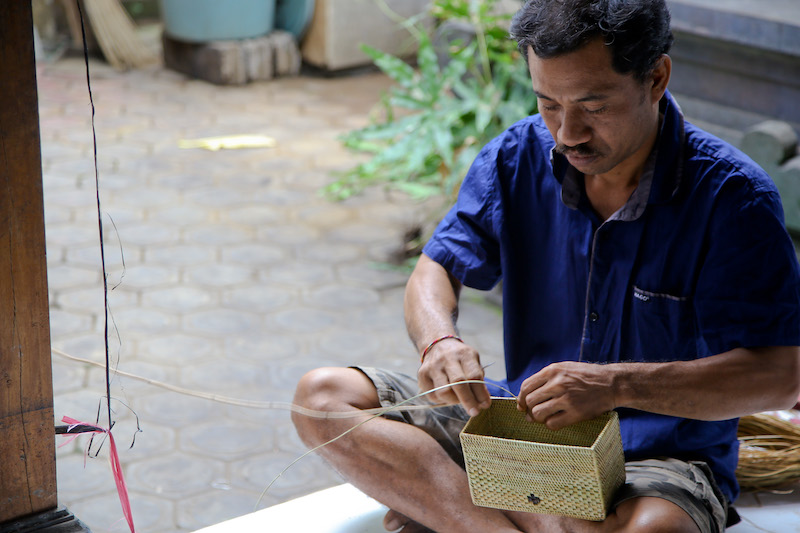
People often ask, "Is ATA woven using machines?" but no machine for weaving ATA exists. This is not due to a lack of machinery in Bali, but rather the complexity of the weaving process, which current technology cannot replicate.
Each ATA product is painstakingly handmade, taking significant time and effort. The finished pieces are so beautifully crafted that it’s hard to believe they are handmade.
Since ATA is a natural plant, its stems have natural bends. Skilled artisans utilize these curved sections to create both straight and curved lines. Even if crafted by the same artisan, no two ATA products are ever identical.
ATA products strive for the most beautiful lines possible, even using naturally bent sections of the plant. Although some irregularities may remain, this is a natural aspect of working with plants. However, poorly made ATA lacks the elegance and quality of products crafted by skilled artisans.
"ATA is handmade, so each piece is unique."
This should not be an excuse for poor quality. Instead, we hope you can recognize the true essence of high-quality ATA products.
Only ATA products crafted by highly skilled artisans, who put their heart and expertise into their work, can truly be cherished for their beauty and individuality.
3. Drying
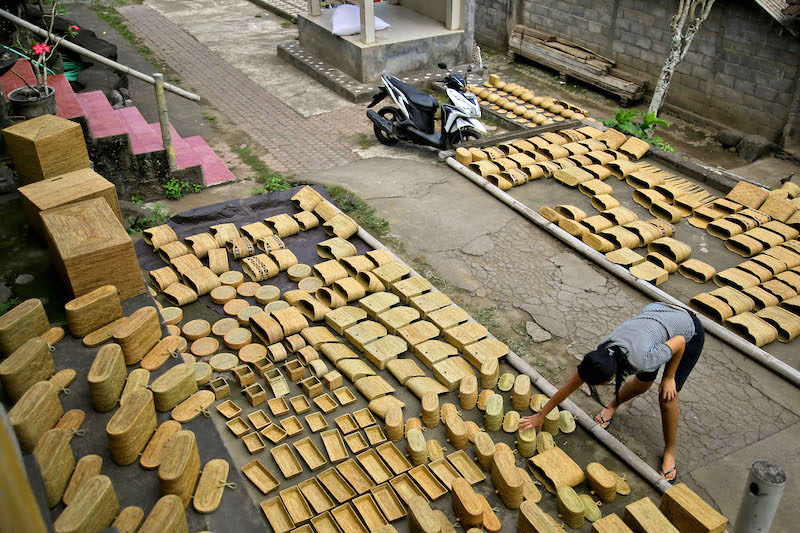
After weaving, ATA products are sun-dried for about 10 days.
They are laid out under Bali’s intense sunlight for approximately a week, from morning until evening. However, during the rainy season, sudden downpours require the products to be quickly moved indoors, making the drying process labor-intensive.
In Tenganan Village, beautifully arranged rows of ATA products drying outdoors are a common sight. Compared to Bali's intense sunlight, Japan's gentler sun ensures the products retain their quality even after prolonged use.
Through this drying process, the green color of the stems gradually transforms into a light brown shade.
4. Smoking
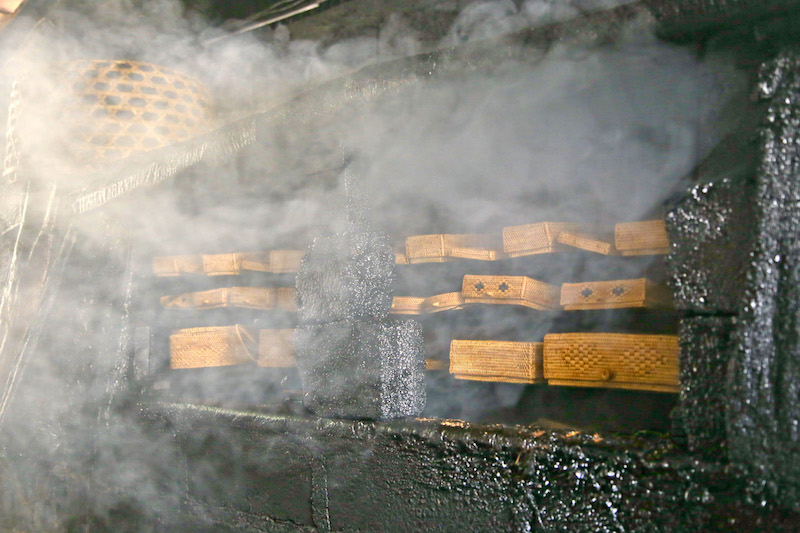
After sun-drying, ATA products are smoked using coconut shells and sugar made from coconuts. This process lasts three days and three nights, enhancing durability and providing protection against insects and mold.
This natural treatment ensures the safety and longevity of the products. However, due to the labor-intensive nature of this process, some ATA products skip the smoking step.
Authentic ATA products always undergo this essential smoking process, marking their true craftsmanship and quality.
From 2005 to 2018, Rosily operated an organic café.
ATA products were extensively used in this café, serving as bread baskets, coasters, and placemats. Some items lasted as long as 13 years, enduring the demanding environment of commercial use.
The unique aroma from the smoking process is a hallmark of genuine ATA products, offering a sense of comfort and authenticity.
Direct Import from Bali to Japan

At Rosily, we directly import ATA products from Bali without intermediaries.
For import, we use air freight (air cargo). Products travel from Bali via Singapore or Thailand to Narita Airport, then by land to Chubu Centrair International Airport.
Once at the airport, we personally transport the goods by truck and handle customs clearance ourselves before delivering them to the Rosily main store.
Using intermediaries for export or outsourcing customs clearance during import incurs high costs. Likewise, hiring a logistics company to transport goods from Chubu Centrair International Airport also adds significant expenses.
By managing all these processes in-house, we can keep costs down and offer our products at more competitive prices.
As shown in the image above, our cardboard boxes are designed to fit perfectly into a 3-ton truck.
We continually optimize every aspect of our logistics to minimize costs.
Although shipping by sea is more economical, it often requires fumigation with chemicals like methylene chloride, a highly toxic substance. This would ruin the natural qualities of our ATA products.
By using air freight, we can avoid such chemical fumigation entirely. This is why Rosily exclusively opts for air transport to maintain the integrity of our natural ATA products.
Repairs and After-Sales Service for "ATA Products"
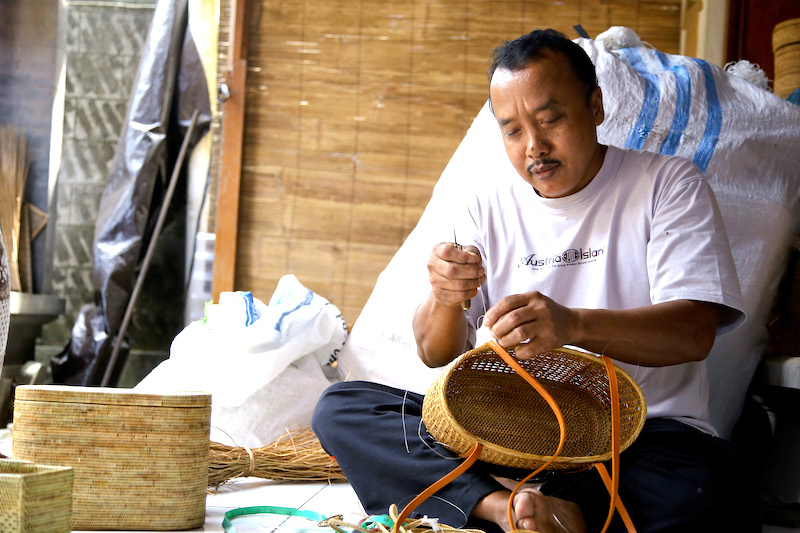
ATA bags are originally designed with Japanese users in mind.
Japanese women tend to carry many items in their bags. The ATA bags sold in Bali are not designed to handle heavy loads. Furthermore, many products sold to tourists in Bali are poorly made because vendors are not concerned about potential complaints after the purchase.
As a result, we often hear comments like, "The handle broke right after buying it in Bali."
Handles are the most vulnerable part of any bag, so at Rosily, we ensure they are made as sturdy as possible. We also offer free repairs within a specific warranty period and provide paid repairs after the warranty expires.
We frequently receive inquiries about repairing ATA bags purchased elsewhere. However, since repairs would require involving the original artisan, Rosily cannot offer repair services for such products. It is truly unfortunate when the beautifully aged body of an ATA bag becomes unusable due to a broken handle.
Because ATA products are meant to be long-lasting, we hope you choose Rosily for a reliable, long-term partnership with your ATA products.
- 2025.03.05
- 23:16
- コメント (0)

